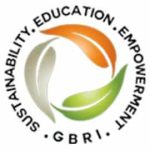The WELL Nourishment concept champions the promotion of wholesome and sustainable dietary habits by prioritizing access to fresh fruits and vegetables, curbing the availability of overly processed foods, and architecting spaces that subtly guide individuals towards healthier dietary decisions. This concept is rooted in the belief that our surroundings should be designed in such a way that the healthiest option becomes the most accessible and straightforward choice.
In today’s world, the environment is not the only entity under threat. A significant portion of the global populace grapples with the dual challenge of malnutrition, marked by micronutrient deficiencies, and the escalating rates of overweight, obesity, and non-communicable diseases. Alarmingly, the risks associated with unhealthy eating habits surpass those of drug, alcohol, and tobacco consumption combined.
But what does this have to do with buildings and the WELL Building Standard? The answer lies in the intricate web of factors that shape our dietary habits. While personal and cultural influences play a role, the environment, especially the architectural spaces and communities where we spend a significant chunk of our lives and consume most of our meals, has a profound impact. The WELL Building Standard v2 recognizes this interplay and offers 13 distinct features under the Nourishment concept. This course will delve into these features, providing insights and strategies within the framework of an actual project, emphasizing the pivotal role buildings play in shaping our dietary choices.
Objectives:
- To elucidate the connection between nutritional transparency and the WELL Building standard, guiding informed food choices in built environments.
- To highlight the role of organic foods in the WELL Building standard, addressing challenges like pesticide residue and antibiotic-resistant bacteria.
- To promote the principles of the WELL Building standard through ethical and socially responsible food sourcing, emphasizing animal welfare and humane practices.
- To discuss the implications of dietary exposure to harmful substances within the context of the WELL Building standard’s objectives.
- To advocate for mindful eating practices aligned with the WELL Building standard, emphasizing the importance of portion control and the reduction of food waste.
- To underscore the benefits of whole grains and dietary fiber, linking their importance to the WELL Building standard’s goals for healthier built environments.
- To provide insights into the integration of special diets, responsible food sourcing, and the local food environment within the framework of the WELL Building standard.
Keyterms
WELL Building Standard, Nourishment concept, dietary practices, food quality, artificial ingredients, nutritional transparency, food advertising, portion sizes, nutrition education, mindful eating, meal breaks, special diets, responsible food sourcing, sustainable sourcing, food labeling, local food environment, fruits and vegetables, and food allergens.









